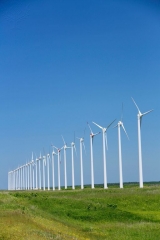
Welcome! Click on a tab below to find books, articles, and websites for use in this course.
You'll need a College of DuPage Library card in order to use most of the resources below from off campus. If your card is not working, it may need to be reactivated.
Questions? Feel free to use my contact info to the right, stop by the Reference Desk, or contact us by email or chat
Finding (and Narrowing) a Topic
Have a glimmer of a topic that you'd like to work on? Great! You'll want to work to narrow that topic a bit before you dive into the catalog and databases, or you will be swamped with results. You can try the following strategies to narrow a topic:
- Visit CQ Researcher, a library database that summarizes current events into massive PDFs.
- Gale Virtual Reference Library has got great entries on many of your topics.
- While you would never cite Wikipedia, you can use the references at the bottom of the entry to start your search.
- Finally, doing an all-purpose Google News search can give you hints about what words to use when searching.
Still Drawing a Blank?
The College of DuPage library has several print magazines/journals that you can browse through for inspiration. For example, try looking at headlines in:
- American Forests
- Mother Earth News
- Audubon
Finding Books on Your Topic
Our new library catalog contains our books, our DVDs and other physical items, and articles from Academic Search Complete and Academic OneFile. Try to search as specifically as possible: rather than searching for Climate Change, try ocean acidification (one of the effects of climate change). Pay attention to the ways to limit your search on the left side of the screen.
Finding Articles in Databases
Scientific research can be best found in academic databases. Here are the top two databases to look for information.
Academic Search Complete has a mixture of popular and scholarly articles on a variety of subjects. You'll want to be sure that you're using a source appropriate for class when searching.
Academic OneFile is a great place to find a mixture of scientific and popular articles as well. Just like in Academic Search premier, make sure that you're using a good source for this project while searching.
Check the Chicago Tribune for local stories about the environment. It can help you learn about local invasive species (quagga mussels! the emerald ash borer!), oil in Lake Michigan, and other environmental topics.
Proquest National Newspapers Core includes the New York Times, the Washington Post, and several other important newspapers in full-text. Can be a great place to add currency to your topic.
Not finding what you want? See the full list of biology databases.
Cite Your Sources
Find directions about how to cite your sources on the library citation guide.
Most databases will have a Cite link that you can also click to get article citations.
Finally, you are welcome to use NoodleBib if you'd like to use a program to create and organize your citations. You must "Create a New Folder" when you use NoodleBIB for the first time. Click on "I am citing a(n):," choose the type of item you are citing, and then fill in the online form. Your bibliography will be formatted for you.
Further questions about MLA or APA style? Check out Purdue OWL, which has APA and MLA citation style guides.